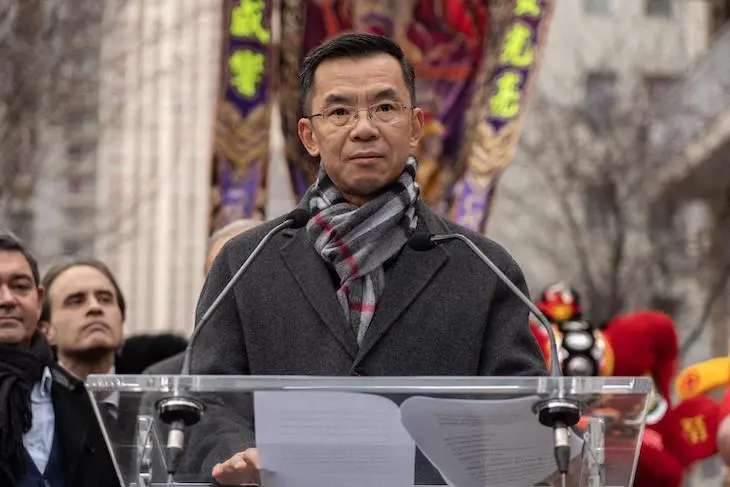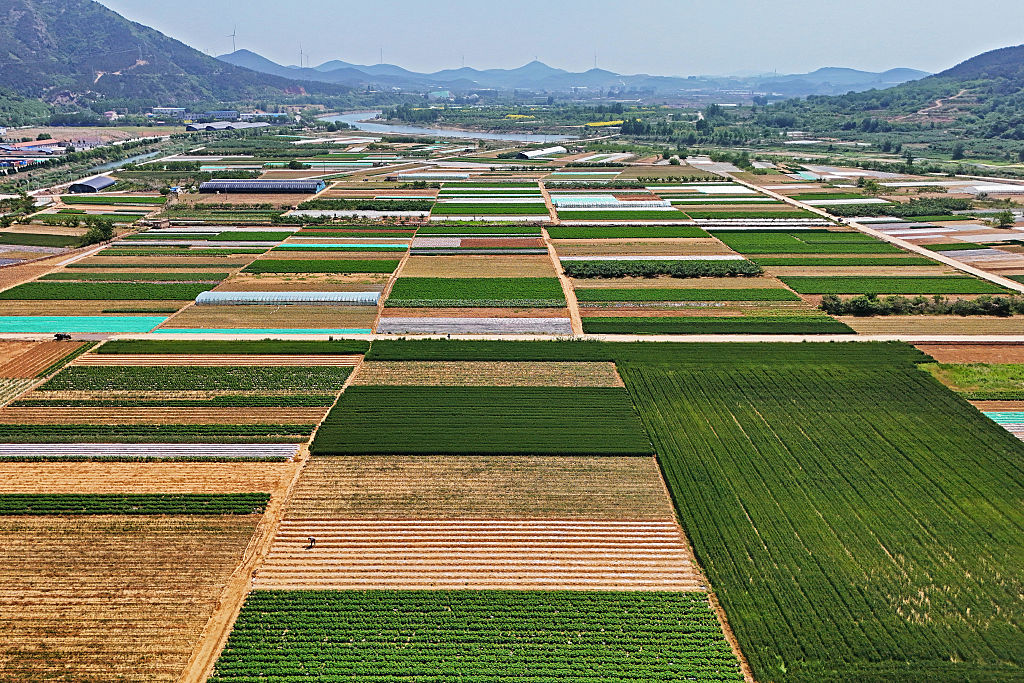The off-color comment by Lu Shaye, China’s ambassador to France, that post-Soviet countries such as Estonia, Latvia and Lithuania did not enjoy “an effective status within international law” was not a gaffe or a case of a Chinese official gone rogue. Instead, Shaye’s remark, which he made on Friday night on France’s LCI channel, must be seen for what it is: a telling admission of Beijing’s real thinking about international relations, which is far cruder and Hobbesian than most Europeans are willing to admit.
Why should we take Lu at his word when he says that for Soviet Republics including the Baltic states “there’s no international accord to concretize their status as a sovereign country?” For a start, Lu is a veteran of both Chinese Communist politics and foreign service. He served as deputy mayor of Wuhan and as ambassador to Canada, among other countries. He epitomizes China’s aggressive approach to diplomacy, exemplified by his warning, in the context of a visit by Nancy Pelosi to Taiwan, that the Taiwanese would have to be “re-educated,” bringing back eerie echoes of Maoist and Stalinist terror.
China doves across the EU — from Germany’s political class to Hungary’s Viktor Orbán and France’s Emmanuel Macron — must be confronted with Lu’s attack
Unless Lu’s superiors in Beijing provide a prompt and vigorous correction, Europeans — many of whom long assumed that China was amenable to becoming a responsible stakeholder in the international system — must conclude that the regime in Beijing views the world through the same set of lenses as the Kremlin. In doing so, it distinguishes between different tiers of countries depending on their might.
It’s true that Lu’s comments are at odds with the more sanitized statements coming out of China’s foreign ministry. Its “Position on the political settlement of the Ukraine crisis” notes that all countries, big or small, strong or weak, rich or poor, are “equal members of the international community.” It also at odds, fundamentally, with the principle that the post-war system of international law was built to uphold.
How the European Union, which subscribes to the rules-based understanding of international relations, responds matters — particularly in the aftermath of the trip by France’s Emmanuel Macron to Beijing. Macron’s visit was predicated on the belief that there was a distinction to be made between Russian and Chinese approach to foreign affairs: the former reckless and aggressive, the latter prudent and forward-looking.
The EU has offered little coherence in addressing the challenge to international order posed by the Chinese regime. First, there are the member states, some of which — like Lithuania or the Czech Republic — are alarmed about China’s growing influence and aggressive behavior in the Indo-Pacific (unsurprisingly, the same countries are also the most concerned about Russia’s challenge to Europe’s peace); and then there are others, more interested in doing business or flatly asserting, as Macron did recently, that a possible war over Taiwan would not be “Europe’s crisis.”
Second, even among leaders of EU institutions, there has been a striking cacophony of voices, from the relatively hawkish attitudes displayed by the Commission’s president, Ursula von der Leyen, through the high representative Josep Borrell, to the Council president, Charles Michel — the least confrontational of the three.
In a bloc of twenty-seven countries, a degree of disagreement is to be expected. However, there is no getting around that fact that the Chinese government does not see three EU members as fully sovereign countries: Lithuania, Latvia and Estonia.
Leaving aside the ambassador’s exact motivation for amplifying a trope that has always been spread by the Kremlin, Lithuania has plenty of experience of Chinese bullying. Since December 2021, it has faced a Chinese ban on its exports, following the opening of Taiwan’s de facto embassy in the capital Vilnius. The EU has helped, providing Lithuanian businesses with a relief fund of €130 million ($143 million), allowing affected business to access loans of up to €5 million ($5.5 milion) loans to cope with the fallout from the lost market access. The EU is also challenging the legality of the ban with the World Trade Organization.
Yet Europe’s solidarity has its limits: at the time of the initial ban, Lithuanians faced enormous pressures from German businesses — and by extension from an important part of Germany’s political class, to cave in. Berlin was attempting to strike a comprehensive agreement on investment with China, and it didn’t want Lithuania to mess things up.
China doves across the EU — from Germany’s political class to Hungary’s Viktor Orbán and France’s Emmanuel Macron — must be confronted with Lu’s attack on the sovereignty of the three Baltic states. If they fail to recognize it for what it is — a brazen rhetorical attack on the foundational principle of the post-war order in Europe by China, while the same order is under attack by Russia in Ukraine — Europeans can kiss goodbye to their dreams of a “sovereign” EU, defending its own interests on the global stage.
This article was originally published on The Spectator’s UK website.

























